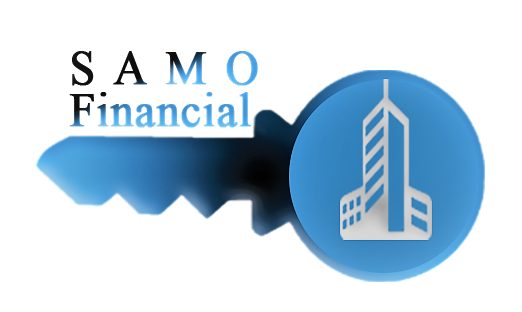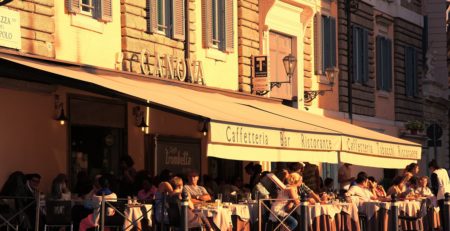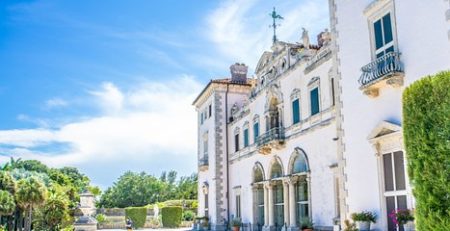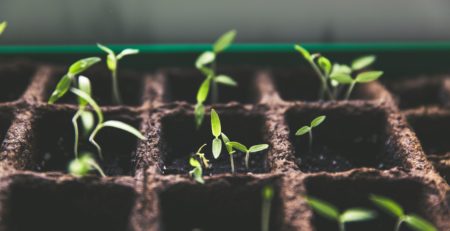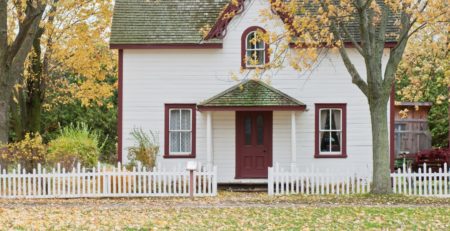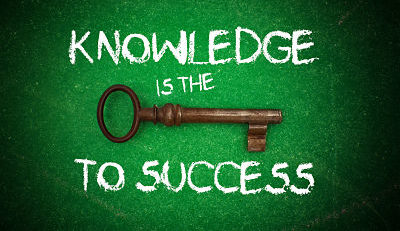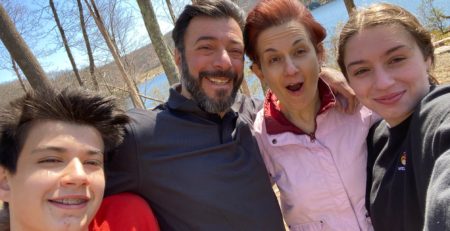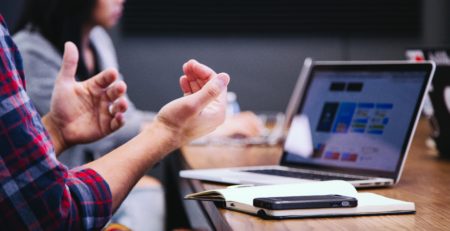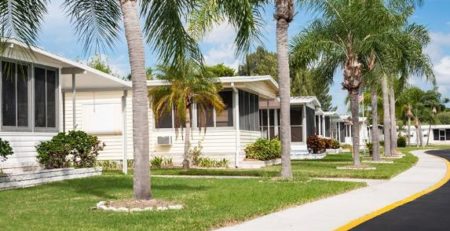The path to becoming a lifestyle investor
“The path to becoming a lifestyle investor”
Interview with Justin Donald
Alina
Hello and welcome, everyone!
We have an absolutely amazing guest for you today. His name is Justin Donald, and I want to give him the floor to share his story because it’s just so absolutely incredible that many of you will want to follow his lead, follow his example and take his advice as well.
Justin, why don’t we start with you telling our audience a little bit about yourself and your family?
Justin
Sure, Alina, it’s great to be here. Thanks for having me. I’m just excited to kind of share some of the things that I’ve learned over the years. I’ve been blessed to have a lot of great mentors and role models that I’ve been able to kind of learn from and what I tell everyone is I’m just a big copycat. So I find people that are doing things, doing them well above kind-of-the-norm, and then I just find a way to emulate and copy what they’re doing. Sometimes they have a playbook. And it’s easier to copy and sometimes they don’t and I just have to learn to be observant and ask more questions. But more than anything, I just think success leaves clues. And I’m trying to be a good detective to pick up all those clues.
Alina
Excellent. I love that. That’s that’s absolutely incredible. And so we’ll have to point a few of those clues today during our interview to our listeners, so they can pick up those clues as well and follow your example.
Justin
Sounds good.
Alina
So let’s talk a little bit about what are the core values for you and why these core values are important to you personally.
Justin
It’s interesting, my family just kind of went through – recently we were talking off air about this – but we recently went through kind of like a revamp of our core values. And so, I have my own core values. My wife has her own. We built some family values that includes the input of our daughter, but also a lot of guiding and steering on our front.
But for me, my top priority, my top value is really love and connection. I think, for me, I’m just a relationship guy first. So I really cherish the people that are in my life and the people that I can learn from the people that have different expertise and different knowledge in all facets of life. And I just tend to be pretty curious. So curiosity is on my list, fun, optimism and enthusiasm. I mean, all these or some of these are kind of similar, but and then really just kind of like abundance and freedom I have grouped together as well. So, when I went through, like, what are the five to six words that encompass or embody who I am and what I know – how do those show up as values in my life. Those are the ones that over and over consistently rise to the top.
Alina
Excellent, I love that! And Justin, would you say that from time to time you and your wife you go over your values and revamp and update them? Is this more or less a frequent exercise?
Justin
Yeah, so I would say on an annual basis for sure my wife and I go over things now. We don’t always revamp our values, and I think values often stay the same. I think over time, maybe you can see them shift over a much longer period of time. But generally, I think your values often remain pretty similar because they’re kind of who you are what defines you and what you pursue.
But we do an annual Marriage and Family Planning Day and it’s a full day. We’ve got this pretty comprehensive outline that we follow that breaks down all different categories of life. And one of the things that we certainly talk about are our goals, our values, the goals and values that we have for the family. But for each of us individually, and then for us together as a couple – that is such a priority to us. And by the way over the years, even that exercise has changed. Where in younger years, when we first started doing this, probably 15 years ago, and I probably been doing it, I don’t know maybe close to 23 years, or some variation of this prior to meeting my wife, but for 15 years, my wife and I have done this, and it’s interesting because early on it was really about achievement and accomplishment, at least for sure in my world, but also in my wife’s too. And now I think it’s a lot more of pursuing who we want to be, and how we want to show up, and the values that we want to pursue, and the characteristics that we want to embody.
Alina
It’s interesting, as I was listening to how the family values project process has evolved for you and your family. It sounds like it’s also been about growing learning mindset shift. You talked about the band abundance. More often than not people that talk about abundance, people that have done through transformation, their mindset, and we all have a to some degree or we’re born with a fixed mindset, but slowly and gradually – and some people faster and some people slower have gone from that fixed mindset to this abundance mindset. Do you feel you’ve gone through the same transformation and at what point if that’s the case?
Justin
Yeah, I mean, certainly I think I’m constantly battling areas of my life where I have a fixed mindset. Even some areas where I think maybe I’ve graduated past it and maybe later I see these little things creeping back in my life where I’m like, wait a minute, I thought I got past this. So part of me feels like it might be just this ongoing journey where maybe we’re never fully abundant in our thinking, but we’re just more abundant than we once were. And there’s always room to kind of be more abundant. But for me, there’s no doubt that early on in my life, my largest influencers or the people with the most proximity to me being my parents and being close family, friends and other family members – there was a lot of fixed mindset that existed in the world that we lived in. And so, unbeknownst to me, I kind of took on some of those beliefs and some of those mindsets and adopted them as my own, even though I didn’t really think through them fully. I just took them as fact, without even recognizing that there was a choice. So yeah, I think throughout life, I can tell you many places where that shows up. But I mean, even today, I could say, hey, I’m doing better than I’ve done in the past, living abundantly. But every now and again, sometimes I catch myself and I’m like, wait a minute. That’s a pretty fixed mindset right there. So yeah, I think it’s just a constant journey.
Alina
It is but just like you said, you catch yourself. People with a fixed mindset don’t think that way. They don’t know what catching yourself about certain thinking entails. So I give you a ton of credit for doing that because that means that you are in constant growth mindset and constantly looking to improve yourself and your surrounding – the wonderful community that you create around you.
So let’s let’s shift gears a little bit and talk about The Lifestyle Investor. But before we get into defining what a Lifestyle Investor is, give our listeners a little bit of your bio, about your professional career and how you got to the point where you created The Lifestyle Investor.
Justin
Sure, yeah. Like most people, early on in my career, I had dreams and goals of passive income and didn’t know exactly how I was going to achieve that. There weren’t a whole lot of people in my world that were doing that. I mean, early on, there was no one in my world doing that. So I just started reading books and finding people that were were doing it somewhere in the world and hopes that maybe I would meet them, but I can at least adopt some of their philosophies and some of their strategies. So early on, it was really just authors, and it was maybe shows or documentaries or biographies and just really getting a chance to learn about people. Because I’ve been in corporate America, but I’ve also been in the world of entrepreneurship, and I founded some companies and and so I’ve been kind of on both sides, and in fact, at one point in my career when I worked with Cutco, I was under the banner of a company. So it was like partially corporate America, but I also had my own company. And so I was partially entrepreneurship, but I didn’t have the full responsibilities of being an entrepreneur. And there were certain things that I had to answer to and certain obligations that I had to perform whether I felt like it or not, and so I can totally relate to people that are in that world and have experienced that and are maybe looking for a way out or for a way to do it different. But for me, I just got to a point where I felt like life wasn’t on my terms the way that I had envisioned it or the way that I kind of wanted it to be. And the more I met people that were living the lifestyle that I desired to live, it was just a reminder and a wake up call each day that I’m not there and I need to keep moving. In my podcast I always say and I always ask people what’s the one thing you can do today to move towards a life of financial freedom, and to live – really to lead a life that is on purpose, not on autopilot. And so I needed to do that. And so I did that by just buying my first rental property. And it was a nerve wracking thing. But once I did that, it built the confidence that I could keep doing it. And so for me that that was really my start. I just looked at someone else who’s done the thing that I want to do, and I just copied their playbook and figured if I was even just a fraction as good as they are, I’m still infinitely better than where I was if I didn’t implement the strategy.
Alina
Amazing. So you took the first step. You took the leap of faith and decided to take action essentially and try it out. Excellent! That that’s, that’s wonderful.
So when would you say you’ve started investing in real estate roughly, where are you like in the middle of your corporate career or more, like wrapping it up?
Justin
Yeah, I was in the middle of my corporate career. One of the things…so I started investing in stock market early on because I didn’t know what to do or where else to go. All the people around me said, I have a Roth IRA, have a financial planner, or a financial advisor. And so that’s really what I did for the first part of my career. So, about 23-24 years ago, I started investing just like that – in money market and with financial advisors and Roth IRAs, and some other products for entrepreneurs and self employed. And over time, I just saw that those weren’t producing the returns that I thought. And even the statements that kind of manipulated me to think I was making more than I really was. Eventually came to head and I realized I’m losing money, even though the statements are making it feel like – since I have this average return that looks good on paper – that I’m doing well. But when I do the math, I’m not doing well like I am losing money. And for whatever reason, there is no negative on my statement, but my money is less. So I just had a wake up call. Like Okay, I can’t cross this to someone else. I need to figure out my own financial education and make moves and take responsibility for my finances. So I just made the decision. I was going to copy best-in-class people, whatever they did, and I ended up having a friend that got into mobile home parks. And so that was my very first investment as I copied him – he bought a mobile home park, and I said well, if he can do it, and he’s doing pretty well with it, it doesn’t seem very tough. I think I could do it too if I just copy what he did and ask him questions when I have and so that was it. I was really nervous before we bought our first mobile home park, but I bought it and that single part replaced my wife’s income. She was a teacher at the time. So in one fell swoop, my wife didn’t have to work anymore, and that was a great way to buy her time back. And I knew in that moment, it was just a matter of time until I was able to buy my time back to0.
Alina
That’s incredible, amazing story. Thank you so much for sharing with our audience. So tell our audience how that The Lifestyle Investor was born.
Justin
So the way that this came about is I had this idea. I mean, for a long time I had said that I wanted to write a book and I had friends encouraging me to do it. I had some friends mandating that I would do it. And so I kind of just never got around to it. And then I had a friend say, Well, what if you died and your daughter never learned all these great concepts that you figured out and the strategies? Like how does that feel? And just that question was like a punch to the gut and getting the wind knocked out of me and we were on a walk at that time. And I remember thinking, okay, now’s the time.
And so I started writing the book, The Lifestyle Investor the next day, thinking that it wouldn’t be much of a success. I didn’t have a big network. I didn’t have a big following then. I didn’t know how to write a book. I didn’t know how to launch a book. I just didn’t know anything about it. I don’t I still today I don’t really consider myself an author. I consider myself a teacher. But the book went on to become a number one Wall Street Journal bestseller and USA Today bestseller. And now we’re just a few years after it’s released, but it is part of the one top top 1% of all books ever sold based on volume based on number of copies sold. So I’m very honored that people find the content that I find interesting also interesting. But this book has also been a great way to shine a light on other organizations that are doing good things in the world because all the proceeds of The Lifestyle Investor go to fight human trafficking. So this book has been responsible for donating hundreds of 1000s of dollars to these efforts in over 30 countries around the world to stop human trafficking. And I’m really proud of that and proud of the impact that the book is making. Because the book is helping to provide human life freedom and the content in the book provides financial freedom for those that implement what’s in it.
Alina
That’s That’s amazing, Justin! And thank you so much for donating all the proceeds to stop human trafficking. It’s definitely an important cause. A friend of mine is also supporting the very same cause, so I heard a lot about him and supported him through his multiple campaigns.
But going back to what you write and The Lifestyle Investor, how would you say you apply that philosophy into your day to day investing?
Justin
Well, when I think of The Lifestyle Investor first and foremost, to me, it’s it’s not about investing. It’s not the investor’s lifestyle. It is about creating an epic lifestyle. And by the way, epic is everyone’s own definition of it. So like the way that I want to live is gonna be a lot different than you and a lot different than many of your listeners. And probably each of your listeners has a different idea of what ideal for them is, but it’s getting clarity on what that looks like. And then it’s buying assets that produce cash flow in a way that can cover life’s expenses. So, I found that once people figure out how to cover their expenses, it becomes very easy to start doing the things that they desire to do and stop doing the things that they’re only doing because they feel like they have to because they feel trapped.
Most people have a hard time making a big switch or big change in life. But if the finances are taken care of, people walk away from jobs, people transition into new careers, people pursue things that really lift them up and fill them up. And so my goal is to help more people do that – live a life that is really by design and not by default.
Alina
You have impacted many people, and I know you’re continuing to impact many people in a way that has never been heard of before. What would you say one of the one of your main superpowers?
Justin
It’s funny, a lot of people think one of my big superpowers is investing. And I actually think it’s not. I’ve gotten good at investing over the years. I actually think my greatest superpower is connecting with people. It’s networking and finding people that are best in class and whatever the thing is, it is that they do. It’s being intentional with the relationships in my life that are very important to me. So I really think relationships and networking and connection like that, to me is where I’m at my best. And I think the reason I’ve gotten so many great deals is because I have a strong network and strong relationships with people. And in many instances I’ve helped them in the past in some area of life, not ever anticipating anything will come back around. I just if someone’s in need. I’m happy to help. In many instances when there was a chance to kind of help me out, they really wanted to do that. And so I would say that’s been really the source of most of or I would say most of the deals I’ve done.
Alina
Justin, you bring a very important point here where the example that you mentioned. You are always about helping others first, providing value to them and essentially doing something that will benefit the person on the other end. And more often than not, people feel connected when someone is offering value to them and not asking anything in return. People feel connected and want to build stronger relationships and continue building those relationships with people like yourself
For our audience, who are mainly W-2 professionals, a lot of them are technologists, working in information technology, and thinking about getting out of the W-2 world and getting out of the Golden Cuffs. What kind of recommendations would you provide – what kinds of steps they should take to get out of that world?
Justin
Well, I think for most people, they’re not going to have a windfall of cash at any point in time. So, for me, I never had a windfall of cash either. I slowly but surely, one deal at a time, built our passive income. And so I think that that really is it. In one fell swoop, we don’t have to replace our whole expenses, our cost of life. But I think if we can get one deal that covers the utilities, and one deal that covers the car payments, and one deal that covers, let’s call it the groceries or the mortgage. These are ways that over time you can get there so for me I had this I guess, motivation that really kicked in.
Once we bought our first property – part of the reason I ended up doing mobile home park investing instead of single family home investing, which is what I originally thought I might get into and even I actually thought the very first thing I was gonna do is three-flat and four-flat investment when I was in Chicago – but it was really expensive. And I had a whole bunch of limiting beliefs and why that couldn’t happen. And if I could go back and do it again, I would do it and I would start sooner. But I just realized that like once I got that first deal done, it wasn’t as scary as it was anymore. And I had this momentum, this excitement that I was making an impact for my family and just that much closer to living life on my terms. Not someone else’s. My goal was to bide my time and stop having the golden handcuffs, stop being a slave to the money that I made to the lifestyle that I’ve become accustomed to based on increased income over the years. So that would be my advice is just piece it together one step at a time.
Alina
Thank you, that’s that’s great advice. If you were to break it down as to how much time percentage wise is spent on the business versus family time. What would that percentage be?
Justin
Well, that’s an interesting question. And if I really measured I could probably give it to you. Off the top of top of my head, it’s going to be a little bit more of a guesstimate. But I can tell you early on in my career, I thought I was a family man. And when I looked at my schedule, I noticed – I had a friend call me out on it – and I kind of had my eyes opened that I was scheduling everything else and then family got the leftovers. And so even though I thought I was a family man, I felt like I was a family man, my schedule didn’t reflect that I was family man. My schedule reflected that I was a business man who snuck in or squeezed in my family around business. And so I had a shift where I said you know what, I’m going to schedule family time and figure out where that’s going to work. And then I’ll just plug the business and after that, and that was a big eye opener for me. And so I put in a lot of boundaries where we do family dinners every night. Every night that were in town, which is most of the time and energy don’t travel very much without my family to travel that we do is generally together. So rarely do I ever work past 5:15-5:30, but I often don’t start work until late morning, early afternoon. And even in earlier years when I did start working early and I used to get up early. I still do but I used to like get to work early. My goal is first like when can I spend time with my daughter she’s in school these hours. These are the hours she’s not in school – let me pick those times. And then I don’t work on the weekends and I don’t work in the evenings, and when I am done for the day, I’m done for the day. I generally will make sure that I’m maxing out my time with my family. So percentage wise, I would say that probably 30-40% of my time is with my family. And now that my daughter’s in school, it’s you’ve got this limited window of time from what I used to have.
Alina
Yeah, absolutely! Curious – you touched upon family and your daughter been in school. Do you try to explain to your daughter what you do and what does it entail?
Justin
Well, I certainly do and I think for a long time, she didn’t really fully grasp it. I think we are getting closer and closer as the years go on. She still doesn’t fully understand, but there’re certainly things that she does and their little a-ha’s that she has throughout the day. And so we’re having fun talking about it. But she’s done some business fairs with her own business and we’ve been able to help coach and guide her through some of that so she she understands a little bit about the entrepreneurial world at a young age.
Alina
Excellent! What grade is she in?
Justin
She is in fourth grade right now. So she started doing she’s her first business fair when she was six. So for the last four years she had a different business each year and is broke a profit each time which is cool.
Alina
Impressive!
Justin
And I will tell you this last time was kind of cool because I’ve been trying to help her understand breakeven points and like what does that mean? Then I just for the life of me could not communicate it to her and my wife had the idea why don’t we just help her build an Excel spreadsheet and then she can input the numbers. And all of a sudden during the business fair as she’s inputting the numbers the sale happened and she watches she sees how much she owes us or what we covered. We lent her money and then she saw that decreasing, and then she’s like, “Wait, Dad, I think I understand. Are you telling me that when this numbers to zero, I then have paid everything I owe and I’m gonna be in profit?” And I’m like, “Yes, you got it!” You see it, and we just had to illustrate it a little better. Our words weren’t doing a good enough job. But now she gets that and that was a big win.
Alina
That’s amazing! And she didn’t even play Cashflow 101 yet, I take it?
Justin
Well, we we played that. And by the way, that’s probably foundationally, some of the good things, but there are aspects of it, where I’m like, “This is great! She’s learning all these things.” And then part of me is like, “Oh, maybe she isn’t fully getting them quite yet. It’s just a game.” But then years later, you’re like, “Oh, I think some of this did stick!” So in the moment I’m always wondering how much does she pick it up, but she’s sharp and she’s picked up a lot each time.
Alina
Of course, that’s amazing to hear! She is in fourth grade, and already on her fourth business. All the power to her and kudos to her, and I’m sure many more successful businesses to come early, which is amazing!
Now that it sounds like you’re spending a lot more time with your family because you’re paying attention to your schedule, as a family man, are you thinking about leaving a legacy and if yes, then what does leaving a legacy mean to you?
Justin
Yeah, so I think leaving a legacy is important, but it’s not important from the standpoint of leaving money or having your name on stuff like I don’t care about any of that. The legacy I want to leave is how do you treat people well? How do you have good relationships? For us, our faith is very important. So we really want to honor God, treat others well and love ourselves. And so we’re trying to teach that. And from a legacy standpoint, I recognize that her peer groups really important and the influence I can have on that peer group, and the influence I can have on education and learning and growth mindset, and surrounding yourself with people that really are excelling in areas that maybe you aren’t, or desire to get better and just have some achievement drive in them, like all these things, I think are so important.
So to me, that’s the lesson – that’s legacy. And by the way, there could be a component of capital, if done the right way. But I also think if you you leave too much money and if you leave money without the ground rules around it, you can corrupt your children too. So I think that wisdom is way better than money.
Alina
I couldn’t agree more! Very well said, Justin.
We always try to recommend our listeners a great book. And of course, The Lifestyle Investor is very high on our list. In addition to that, which book or maybe a couple of books would you say have made a significant impact on you early on in your career when you’re just transforming your journey?
Justin
Well, the first book that I think I really got into that was like a self help type of book I mean, there are three that really stand out. One of them was Rich Dad, Poor Dad, one of those How to Win Friends and Influence People. But the one for me that really stood out that really for me was a game changer was Cashflow Quadrant by Robert Kiyosaki. And that just put so much into perspective for me. Taxes, the way people earn money, what a business owner really is what an investor is. I mean, that book was so eye opening for me.
Alina
Thank you so much for that recommendation! Any parting words for our audience?
Justin
Yeah, I think more than anything the goal is, how do you surround yourself with people that are playing the game of life and business and fitness and health, and let’s just call it wealth, encompasses all of those things I just mentioned. How do you play the game of that at a higher level? How do you surround yourself with people that are doing that at a higher level than you that you can learn from because I really do think your peer group is like, that’s where you’re gonna get the opportunity where sometimes you learn something new and you’re like, “Wow, that’s, that’s profound.” But if you keep hanging out with people like that, it’s not profound anymore, it becomes normal, you might still get new profound thoughts, but what once was profound becomes kind of like a regular conversation. And so I just am always looking for people that can help me level up my game in whatever area it is.
Alina
That’s amazing. Thank you for that advice. I think that’s great advice.
And there’s always someone who has done something already and like you said, there’s no need to reinvent the wheel. So if you see that another person has achieved your potential dream, just follow their footsteps.
Justin
That’s right.
Alina
Excellent! Thank you so much for this interview, Justin. We’re very, very grateful. And for our listeners that want to find you or to follow you, would you recommend them to go into your website, and which which website would that be? Because I know you have several.
Justin
Yeah, probably the best one would be just to go to www.LifestyleInvestor.com. So, I’ve got everything on there that I can think of that someone would find interesting – from free to higher ticket pricing, I’ve got a blog, I’ve got a podcast, I’ve got an online course, a couple of different master classes, a mastermind. So if anyone’s curious, like, “What should I do? What would be a good step?”, you can go to www.LifestyleInvestor.com/Strategy, and set up a free call with someone on our team that can help kind of point you to the direction of maybe a program or product that’s that’s the right fit for you right now in this season of life. And then, most certainly for anyone your audience that wants to get one of my books for free, you can go to www.LifestyleInvestor.com/FreeBook, and we’ll send you a book – you just pay for shipping.
Alina
Wow, I couldn’t wish for a better gift for orders. Thank you so much for that, Justin.
Again, thank you for the incredible interview. We’re very, very grateful. And looking forward to see what’s next from you in your shop.
Justin
Well, thank you.
It’s great to connect and great to be able to share some of the things I’ve learned with your audience. And I hope people can take away at least one thing to move towards a lifestyle that they truly desire.
Alina
Justin,
Thank you very much!
Have you thought about passively building your wealth via real estate investing?
Let’s talk
